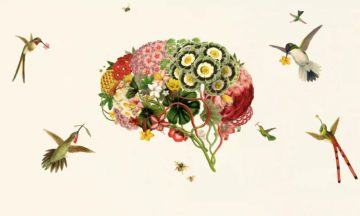Philip Ball in The Guardian:
 How do you spot an optimistic pig? This isn’t the setup for a punchline; the question is genuine, and in the answer lies much that is revealing about our attitudes to other minds – to minds, that is, that are not human. If the notion of an optimistic (or for that matter a pessimistic) pig sounds vaguely comical, it is because we scarcely know how to think about other minds except in relation to our own.
How do you spot an optimistic pig? This isn’t the setup for a punchline; the question is genuine, and in the answer lies much that is revealing about our attitudes to other minds – to minds, that is, that are not human. If the notion of an optimistic (or for that matter a pessimistic) pig sounds vaguely comical, it is because we scarcely know how to think about other minds except in relation to our own.
Here is how you spot an optimistic pig: you train the pig to associate a particular sound – a note played on a glockenspiel, say – with a treat, such as an apple. When the note sounds, an apple falls through a hatch so the pig can eat it. But another sound – a dog-clicker, say – signals nothing so nice. If the pig approaches the hatch on hearing the clicker, all it gets is a plastic bag rustled in its face.
What happens now if the pig hears neither of these sounds, but instead a squeak from a dog toy? An optimistic pig might think there’s a chance that this, too, signals delivery of an apple. A pessimistic pig figures it will just get the plastic bag treatment. But what makes a pig optimistic? In 2010, researchers at Newcastle University showed that pigs reared in a pleasant, stimulating environment, with room to roam, plenty of straw, and “pig toys” to explore, show the optimistic response to the squeak significantly more often than pigs raised in a small, bleak, boring enclosure. In other words, if you want an optimistic pig, you must treat it not as pork but as a being with a mind, deserving the resources for a cognitively rich life.
More here.
